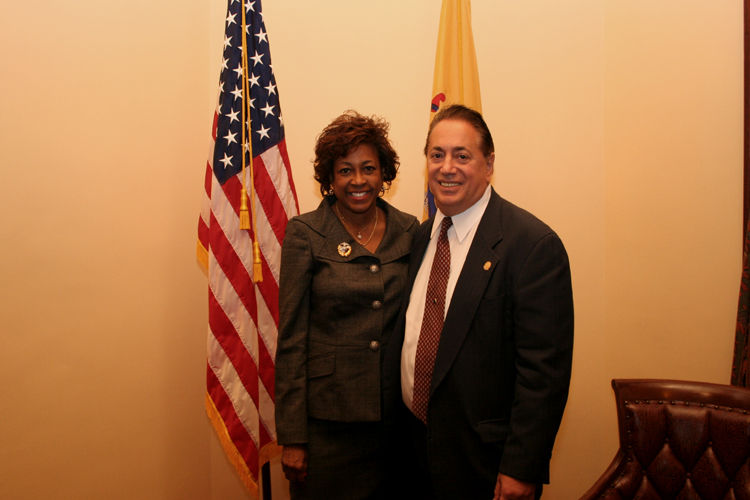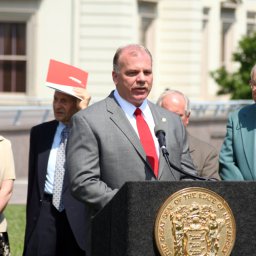
Bill Would Hold Port Authority To Standards of Open Public Meetings Act
TRENTON – Legislation sponsored by Senators Sandra Bolden Cunningham and Nicholas Sacco to strengthen transparency laws governing the Port Authority of NY & NJ by requiring the board’s meeting standards be at least as strong as the provisions contained within the “Open Public Meetings Act” was unanimously approved today by the Senate Transportation Committee.
The bill (S-550) would establish by state law the requirement that the port authority adequately provide notice of board meetings to the public and the news media, as well as establish clear guidelines regarding public access to meetings. Specifically, the bill would require the port authority to follow the same requirements of the “Open Public Meetings Act” of New Jersey and the “Open Meetings Law” of New York; in the event they conflict, the board would be required to adopt the provisions which provide for the greatest rights to the public and the media.
“The Port Authority handles billions of dollars of public money, and operates a massive transportation network in two states, consisting of some of the country’s busiest airports, bridges, tunnels and ports,” said Senator Cunningham (D-Hudson). “It is critical that permanent policies are in place to ensure that board actions are fully transparent and that decision-makers are held accountable to the residents who support their operations.”
“Providing the public proper access to authority meetings is vital to ensuring that residents are able to monitor how their hard-earned dollars are being spent,” said Senator Sacco (D-Hudson/Bergen), chair of the Senate Transportation Committee. “This bill will ensure that the authority meets strong transparency standards and that these standards are not only part of the bylaws, but established in state law and, therefore, cannot be changed by the board they were created to govern.”
The Port Authority came under fire in 2006 when the media reported major financial and policy decisions were being approved in closed meetings. The authority subsequently took steps to improve access and transparency, adopting new rules as part of its bylaws. However, since the rules are not established in state law, they could be altered by the board.
The bill would require specifically that the Port Authority give notice to the public and the news media of the board’s meetings, and require the board to adopt rules concerning notice to the public and public attendance within six months of the bill’s effective date. The measure clarifies that the right of the public to be present includes the media.
“I applaud the board for taking actions in recent years to improve transparency by incorporating new meeting policies into their bylaws,” added Cunningham. “However, we must ensure that policies creating transparency are permanent, not merely written internally and subject to change by the very individuals to whom they apply.”
“This legislation will ensure the authority is held to strict transparency standards, and that any proposed changes are fully vetted by lawmakers and implemented only with the input of the public,” added Sacco.
New Jersey’s “Open Public Meetings Act” requires advance notice of a meeting agenda with at least 48 hours notice; the right of all members of the public to be present, except when the board has adopted a resolution at a public hearing to go into a closed session, with the resolution explaining what will be discussed in the closed, or “executive” session; and a requirement that minutes of the meeting are recorded. The law does provide for instances when an emergency meetings is necessary and the 48 hour notice cannot be satisfied. In these instances, the board must release a notice as soon as possible explaining the reason for the emergency meeting and the topics to be discussed.
Since the Authority is a bi-state agency, the bill would take effect only when the State of New York enacts legislation having an identical effect. The committee approved the legislation by a vote of 5-0. It now heads to the Senate for consideration.


